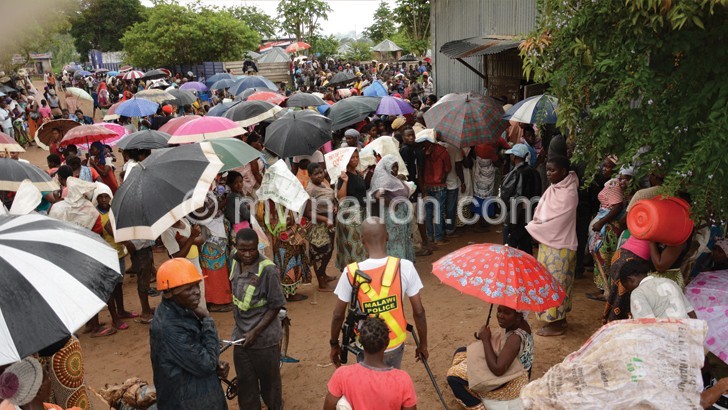Cost of living up 8.7%—study
The cost of living, which is the cost of maintaining a certain standard of living, has risen by 8.7 percent largely due to food price increase, pushing more people into abject poverty.
The rise is reflected in the results of the Basic Needs Basket (BNB) study conducted by the Centre for Social Concern (CfSC).

The findings show that a family of six now needs K209 460 to survive in a month, a rise from K194 484 per month the year before.
The study reveals that such an increase in the cost of living, without a corresponding increase in income, is pushing more Malawians into poverty at a time the minimum wage is at K35 000 per month.
CfSC programme officer for economic governance Bernard Mphepo said in an interview on Saturday that minus other essentials in the BNB study 2019, there was an average increase in the cost of food from K112 320 to K126 649, representing a 12.8 percent increase.
He said the average cost of maize, the country’s staple grain, increased from K8 321 per 50 kilogramme (kg) bag in June 2019 to K18 000 per 50 kg at the end of December last year.
Said Mphepo: “The figures reveal that many Malawians’ average levels of income fall below minimum requirements of cost of food items and minimum cost of living.
“The fact that the cost of living is significantly influenced by the cost of food shows how agro-based policies should be taken seriously to protect the welfare of Malawians.”
The study recommends deliberate investment in agriculture and ensure improved prices for farm produce to increase disposable income for people.
CfSC challenges government to allocate more money to agricultural development projects such as irrigation to improve productivity and promote agriculture products for the regional and international export markets.
Further, CfSC proposes introduction of a living wage or an increase of the minimum wage above the current K35 000, saying it is on the lower side considering the high cost of living.
In an earlier interview, Ministry of Labour, Skills and Innovation commissioner of labour Hlale Nyangulu warned that continued demand for a living wage could lead to massive retrenchments as the economy remains small to support such adjustments.
“Sometimes, if we set a minimum wage much higher, the employer is unable to sustain that wage, obviously that employer will resort to retrenchment, resulting in a lot of workers losing their jobs,” he said.
Last year, the African Development Bank said many Malawians are still living in poverty as their incomes are very low, with gross national income (GNI) per capita of $360 (about K266 400) in 2016. GNI per capita is the dollar value of a country’s final income in a year divided by its population and reflects average income of citizens.





